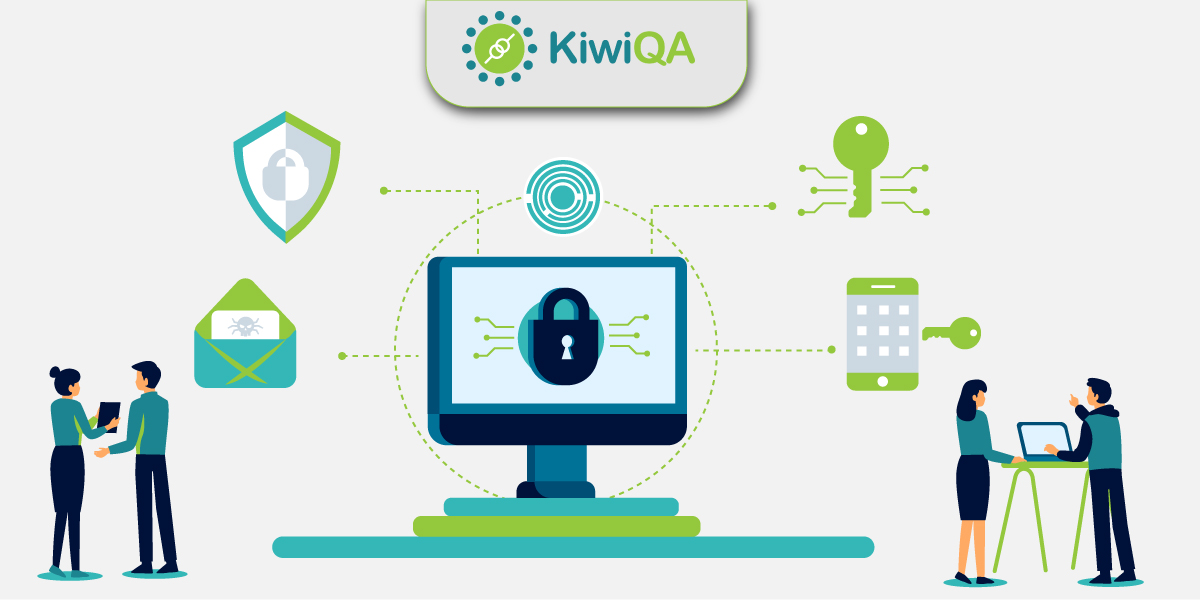Introduction to API Security Testing

 KiwiQA
KiwiQAData is the backbone of any software business, making it essential to secure the data to minimize the chances of any kind of security breaches. As per reports[1], hackers (or malicious actors) normally consider exploiting vulnerabilities in the APIs to exploit breaches in the system. Equifax data breach[2] way back in 2017 exposed sensitive information of close to 147 million accounts.
APIs are an integral part of any modern software architecture, which is why it becomes important to secure the APIs to minimize security attacks. In today’s data-driven software world, most organization’s sensitive information lies behind the API. Hence, organizations must invest heavily in strengthening the security aspects of the APIs.
However, delivering a secure API experience is easier said than done. Many enterprises (as well as startups) that do not have an in-house expertise in API security partner with companies that have expertise in providing security testing services. In this blog, we look at the most integral aspects of API security testing, along with answering the following questions:
So, let’s get started with our blog on API security testing…
As the name indicates, API Security Testing is the process of unearthing security vulnerabilities in the APIs. This exercise helps in making the APIs more secure; thereby ensuring that they are at a much lesser risk of witnessing any potential security attack.
Penetration testing is one of the most widely used ways to perform security testing of APIs. Many security testers also make use of manual scanning of APIs to unearth security issues in the APIs.
With the advent of Continuous Testing & Continuous Deployment (or CI/CD), many teams prefer to run API security tests as a part of the CI/CD pipeline. With this approach, vulnerabilities in the APIs are unearthed before they make it to the production.
Like other forms of software testing, there are different types (or categories) of API security testing. It is majorly divided into SAST (Static Application Security Testing) and DAST (Dynamic Application Security Testing).
Security (and DevSecOps) teams are preferring dynamic security testing tools for performing security testing of the API endpoints.
Akin to static analysis tools, static API security testing tools also look at the source code to unearth potential vulnerabilities in the APIs. The tools in this particular category look out for patterns that might pose security concerns.
Like static code analyzers, the static API security testing tools are also programming language dependent. Hence, the security team might have to use programming language-specific API security testing tools.
Also Read – Best Practices for Security Testing of Software
Dynamic API security testing tools are very different from static tools. The major difference is that dynamic API security testing tools simulate a real-world attack to find security vulnerabilities in the code.
Dynamic API security testing is preferred since it also helps in unearthing security issues in the open-source libraries that are used in the project. This is over & above the task of finding security issues in the actual source code.
An ideal API security testing approach is to combine the prowess of static API security testing and dynamic API security testing so that security issues can be unearthed in all the potential ways.
Software Composition Analysis (SCA) tools can be used in conjunction with dynamic API security testing tools to perform API security tests at scale. SCA tools are super useful in locating issues since they look at the dependency tree of the application and match it against an intense database of security vulnerabilities.
SCA also identifies vulnerabilities that are present in the library or framework. In case your development team is making use of any open-source APIs (or frameworks), it is recommended to use the combination of SCA and dynamic API security testing tools so that security issues can be unearthed from developer’s code as well as open-source libraries (and frameworks).
A security testing company can help in getting the best out of the API security testing tools so that your team can release a top-quality product in the market!
Also Read – Your Guide To Mobile Application Security Testing
Now that we have covered the major types of API security testing tools, let’s look at wide-used security testing tools. We can divide them into two major categories:
Here are some of the most preferred open-source security testing tools that can be leveraged to strengthen API security:
Apache JMeter is a very popular load testing tool that can be doubled up for usage of security testing. Along with API testing, it can also be used for testing the application (or program) from a security perspective.
By simulating load using Apache JMeter, testers can also discover how the API will behave under heavy load.
With the interaction between different software components, it becomes important to perform adequate testing of REST APIs. Security testing of REST APIs becomes challenging since they keep changing over a period of time.
This is where Astra can be helpful, as it is primarily built to unearth security vulnerabilities in the REST APIs used in the system. Astra can be integrated with popular CI/CD tools like Jenkins, TeamCity, etc. making it a more preferred option for API security testing.
Here are some of the popular commercial API security testing tools:
AppKnox is a popular API security testing tool that is chosen by organizations that have lean security testing teams. The tool that can be used to locate vulnerabilities in the APIs, even if they are deployed in the production environment.
AppKnox can be extensively used for finding security issues in web servers, databases, and any other component that interacts with the APIs. Such a strategy helps in building more secure APIs for the system.
SmartBear ReadyAPI can be used for security testing of APIs with a single click. Like other tools, it can also be used in prod as well as staging environments.
Another major advantage of SmartBear ReadyAPI is that it can be integrated with popular tools like Jenkins, TeamCity, Docker, and more.
PostMan is a very popular tool for building secure APIs. It is used by millions of developers and testers since it is available for Windows, Linux, and macOS environments.
As mentioned in the official website of PostMan[3], it is very easy to integrate security testing as a part of the PostMan lifecycle.
Apart from the above mentioned tools; Synopsis API Scanner, Taurus, and crAPI are the other preferred API security testing tools.
Also Read – 5 Types of Tests To Perform On Your APIs
APIs have become an integral part of any software business. Many products also provide third-party APIs that are used by other developers and/or enterprise clients.
Since APIs are so important, it is essential to invest heavily in API security testing so that enterprises can minimize instances of security breaches. Partnering with a security testing Services Company can prove to be beneficial in accelerating API security efforts at a faster pace.
Subscribe to our newsletter for some hand-picked insights and trends! Join our community and be the first to know about what's exciting in software testing.
Welcome to the testing tales that explore the depths of software quality assurance. Find valuable insights, industry trends, and best practices for professionals and enthusiasts.

Fill out and submit the form below, we will get back to you with a plan.
 CRN:
22318-Q15-001
CRN:
22318-Q15-001 CRN:22318-ISN-001
CRN:22318-ISN-001 CRN:22318-IST-001
CRN:22318-IST-001